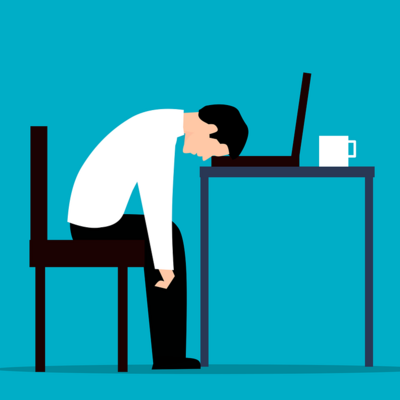The pandemic brought with it a surge in workers feeling stressed, anxious and increasingly burned out.
This came as people struggled to juggle long, isolated working days and rising workloads, alongside their personal lives and genuine concerns about COVID itself.
A survey conducted among employees in Australia, France, Germany, New Zealand, Singapore, the United Kingdom and the United States showed how 57% percent of respondents reported experiencing more anxiety since the Coronavirus outbreak.
Signs include lower productivity, emotional and physical exhaustion, lack of concentration, decreased engagement, less recognition from managers, negativity and a general decline in health.
In the Legal sector, the problem has been particularly prevalent, with some firms increasing the size and regularity of bonuses as workers faced burnout during the health crisis.
Alongside the added cash, firms promised more time off and extended working from home arrangements in an effort to retain Legal professionals who were accustomed to putting in gruelling 100-hour weeks.
The simple fact is that stress, anxiety and pressure at work can significantly impact our wellbeing, and increased incentives, flexible working and mental health breaks can help people to re-energise and recharge.
However, one poll, conducted on LinkedIn, indicates that the majority of the workforce don’t feel comfortable asking their employer for a mental health break, with over half (53%) of respondents choosing that option.
Without doubt, the pandemic has accelerated feelings of being demotivated and undervalued but there are ways to create positive change. Read on for our guidance around preventing burnout among your employees.
1. Open the lines of communication
Make sure that every voice in your business is heard. As a leader, it’s your job to motivate your employees, especially in times of crisis and uncertainty.
Hold regular one-to-one and group meetings on a more formal basis to convey the latest organisational updates and then with a more informal tone to see how people are getting on in their daily lives. This also gives people the chance to ask for time off or increased flexibility in a safe setting.
Try to focus on the positives before communicating the negatives and show your appreciation on a regular basis.
2. Make the working experience easy for employees
If there are any issues relating to tools, policies or equipment that are keeping an employee from completing their daily work, make sure that you address them.
Providing the relevant tools and frameworks, adopting an empathetic stance and being available for honest communication will set your employees up for success, which will positively impact their wellbeing, help to prevent stress and ultimately increase efficiency and boost performance.
3. Create realistic goals
Design a plan for your employees to achieve their goals while guiding them as to how their work will get done. Set challenges so that your employees can learn and grow but don’t be too strict and rigid. This will enable you to shift deadlines for projects or allow people to delegate to colleagues, where feasible.
4. Promote a healthy work/life balance
Set clear boundaries and expectations for working after hours at home and extend this to longer periods of time off if required. For example, you could stipulate a cut off time at the end of the working day for people to check their emails, while encouraging regular screen breaks throughout the day and to exercise when possible.
5. Offer rewards
Keep employees motivated by allowing them to finish early on a Friday. You could also schedule weekly team lunches, be it in-person or via video conferencing, or offer a prized duvet day to the highest performer of the week. Team building activities such as pub style quizzes can also help to bring people together.
Overall, it is important to ensure that your employees understand that taking breaks and time off is not a bad thing, especially in the current climate. With the added stresses that recent times have brought to the table, it is unrealistic to believe that workers can continue their outputs in the exact same way as they did pre-pandemic. At the end of the day, a content and well-rested employee will be more productive in a shorter time than a stressed individual working overtime.
For more on employee wellbeing, see our related articles:
Managing Your Stress Levels through the Return to Work
Alleviating Your Employees’ Return to Work Concerns
How to Promote a Culture of Wellbeing
If you would like to discuss this or any of the topics covered in our articles, please get in touch







